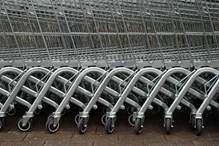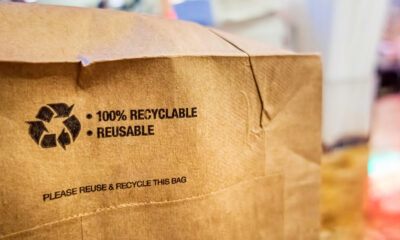

Economy
Ethical consumer market grows to £47bn despite recession
The Cooperative report shows that the market for ethical goods and services has remained resilient throughout the economic downturn as a progressive core of retailers and producers continue to factor sustainability into their products and services (e.g. Fairtrade ingredients) and to sell sustainable produce.
The annual ethical consumer market report tracks the total economic value attached to a broad range of personal choices, such as food, household products, finance or charitable donations, where choice has been informed by a concern for a particular issue such as the environment, animal welfare or human rights.
The ethical market is now worth £47.2bn, up from £13.5 billion in 1999. Strongest growth over the last year has been seen in energy micro-generation, sustainable fish, green cars and fair trade (9 in 10 customers now say they recognise the fair trade logo). Struggling sectors have been rechargeable batteries and new bicycles.
You can read the full report here.
Barry Clavin, Head of Ethical Policies & Sustainability Reporting at The Co-operative, said: “The report shows that intervention by enlightened businesses, together with regulatory intervention, is driving ethical sales growth.
“During the downturn we’ve seen some of the biggest ever Fairtrade conversions, be it in chocolate or sugar, and business is beginning to respond to the challenge to provide consumers with more sustainable products and services such as fish, palm oil and soya.
“Ethical consumers are still a vitally important agent of change; however, the actions of progressive business are now a significant contributor to sales growth.
“At the same time, let’s not lose sight of the fact that ethical sales remain a small proportion of total sales. Ultimately, over and above the efforts of responsible business and ethical consumers, sustainable solutions require a government committed to long term intervention.”
In December, we published a feature on ethical consumerism’s long journey to the mainstream from our 2012 Guide to Ethical Shopping.
Further reading
Creating a sustainable shopping culture: interview with M&S
Fairtrade: “responsible capitalism in action”


 Environment9 months ago
Environment9 months agoAre Polymer Banknotes: an Eco-Friendly Trend or a Groundswell?

 Environment11 months ago
Environment11 months agoEco-Friendly Home Improvements: Top 7 Upgrades for 2025

 Features8 months ago
Features8 months agoEco-Friendly Cryptocurrencies: Sustainable Investment Choices

 Features9 months ago
Features9 months agoEco-Friendly Crypto Traders Must Find the Right Exchange



























